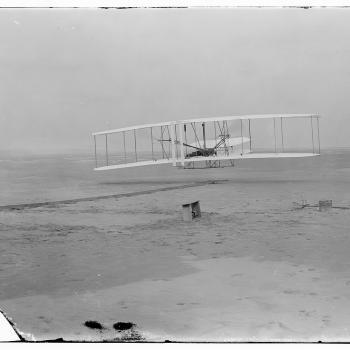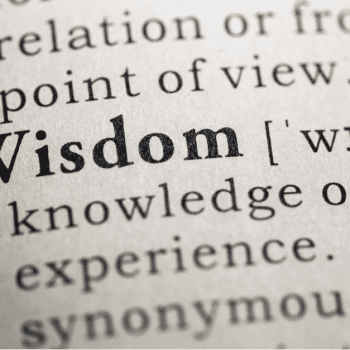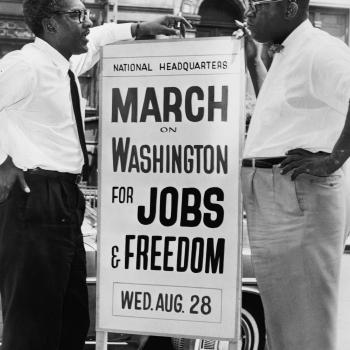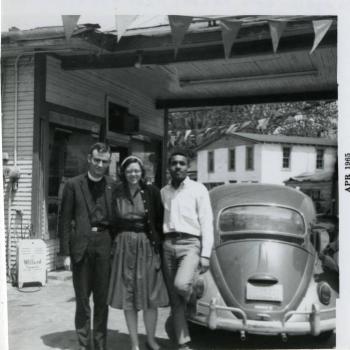This is a sermon I gave in the past, that I’ve rewritten a little for today.
John 1:29-42 The next day he saw Jesus coming toward him and declared, “Here is the Lamb of God who takes away the sin of the world! 30 This is he of whom I said, ‘After me comes a man who ranks ahead of me because he was before me.’ 31 I myself did not know him; but I came baptizing with water for this reason, that he might be revealed to Israel.” 32 And John testified, “I saw the Spirit descending from heaven like a dove, and it remained on him. 33 I myself did not know him, but the one who sent me to baptize with water said to me, ‘He on whom you see the Spirit descend and remain is the one who baptizes with the Holy Spirit.’ 34 And I myself have seen and have testified that this is the Son of God.” 35 The next day John again was standing with two of his disciples, 36 and as he watched Jesus walk by, he exclaimed, “Look, here is the Lamb of God!” 37 The two disciples heard him say this, and they followed Jesus. 38 When Jesus turned and saw them following, he said to them, “What are you looking for?” They said to him, “Rabbi” (which translated means Teacher), “where are you staying?” 39 He said to them, “Come and see.” They came and saw where he was staying, and they remained with him that day. It was about four o”clock in the afternoon. 40 One of the two who heard John speak and followed him was Andrew, Simon Peter’s brother. 41 He first found his brother Simon and said to him, “We have found the Messiah” (which is translated Anointed). 42 He brought Simon to Jesus, who looked at him and said, “You are Simon son of John. You are to be called Cephas” (which is translated Peter).”
With this scripture, we see the beginning of Jesus’ ministry. Seemingly called to ministry by John the Baptist, Jesus, in turn, calls to ministry first Andrew, and then Simon.
Simon encountered Jesus, and he came away changed, transformed. He became Cephas – Peter. Like the wise men who found Jesus, and went home another way, changed – Peter was called by Jesus, and was changed.
Tomorrow, we mark the death of the Rev. Martin Luther King, Jr., who was called to ministry when he was a teenager. One of the best known preachers in the history of the United States, he’s the only minister with his own national holiday.
Most of us have heard the stirring words of his “I Have a Dream” speech, spoken on the steps of the Lincoln Memorial, in 1963, when King quoted scripture, saying, “I have a dream that one day every valley shall be exalted, every hill and mountain shall be made low, the rough places will be made straight and the glory of the Lord shall be revealed and all flesh shall see it together.” He went on to say, “now, I say to you today my friends, even though we face the difficulties of today and tomorrow, I still have a dream. It is a dream deeply rooted in the American dream. I have a dream that one day this nation will rise up and live out the true meaning of its creed: ‘we hold these truths to be self-evident, that all men are created equal.”
I could go on and on, quoting that speech, many of us have heard at least some parts of it, many times.
But let me share a little information that may help you see Martin Luther King Jr. as a man and more than a legend. More than a holiday.
He was only 26 years-old, with a new Doctorate, and a relatively new pastorate at Dexter Avenue Baptist Church, called to ministry like Andrew and Peter, when he was called to lead the local bus boycott in Montgomery, Alabama. And a civil rights leader was born.

As he led the struggle against segregation, he was constantly exposed to threats, insults, and verbal abuse. King was repeatedly arrested by police, and pelted with rocks during marches. A firebomb exploded on the front porch of his house, while his little children slept inside.
In 1958, at a book signing in Harlem, a deranged black woman stabbed King in the chest with a letter opener, just inches away from his heart.
Despite the violence surrounding his life and the civil rights struggle, King’s calling to the civil rights movement, and his dedication to nonviolence, were legendary.
And yet, despite his dedication to nonviolence, King was murdered April 4, 1968. He was 39 years-old.
King reminds us that violence isn’t new, and that even those called by God, the most visible leaders, are vulnerable to violence. Even the most vigorous leaders, can become victims of violence. The most peaceful, can face most un-peaceful endings.
Indeed, Christ himself, became a victim of those he came to save.
King was passionately dedicated to the cause of peace, and in Stockholm, Sweden, during the acceptance of his Nobel Peace Prize, in 1964, King said “Nonviolence is the answer to the crucial political and moral questions of our time: the need for man to overcome oppression and violence without resorting to oppression and violence. Man must evolve for all human conflict a method which rejects revenge, aggression and retaliation. The foundation of such a method is love.”
Love.
The response to violence is love. That is the message and lesson of Jesus, and the message and lesson of Martin Luther King Jr.
And with love, comes forgiveness.
What does love that leads to forgiveness look like?
The love of Jesus who begged God’s forgiveness of those who executed him as he hung on a cross.
If Jesus forgave them, if God forgave those who executed Jesus, if God loves us enough to forgive us, then surely we can forgive others. Surely we can forgive others.
As King wrote, “It is impossible even to begin the act of loving one’s enemies without the prior acceptance of the necessity, over and over again, of forgiving those who inflict evil and injury upon us . . . Forgiveness is a catalyst creating the atmosphere necessary for a fresh start and a new beginning.”
There are only two choices, love and forgiveness, or hate.
There is no middle ground. Just as light and darkness can’t exist in the same place, a heart feels love or it feels hate. It can’t feel both. We can love others or hate others. We can respond with hate or we can respond with love. We can share and spread love or we can share and spread hate.
As King wrote in 1963, “darkness cannot drive out darkness; only light can do that. Hate cannot drive out hate; only love can do that. Hate multiplies hate, violence multiplies violence, and toughness multiplies toughness in a descending spiral of destruction. . . . The chain reaction of evil—hate begetting hate, wars producing more wars—must be broken, or we shall be plunged into the dark abyss of annihilation.”
It is easy to be shocked by hatred, bigotry and the seemingly senseless violence in our country and our world.
If we do not love, if we do not forgive, then we are simply succumbing to violence. We fight hate with love or we abandon love and accept hate.
The theologian Reinhold Niebuhr wrote, “nothing that is worth doing can be achieved in our lifetime; therefore, we must be saved by hope. . . . Nothing we do, however virtuous, can be accomplished alone; therefore, we are saved by love. No virtuous act is quite as virtuous from the standpoint of our friend or foe as it is from our standpoint. Therefore, we must be saved by the final form of love, which is forgiveness.”
Without love, there is no forgiveness, and without forgiveness, there is only hate.
King wrote, “Like an unchecked cancer, hate corrodes the personality and eats away its vital unity. Hate destroys a man’s sense of values and his objectivity. It causes him to describe the beautiful as ugly and the ugly as beautiful, and to confuse the true with the false and the false with the true.”
When we hear of these so-called ‘religious freedom’ laws popping up around the country, do they represent love of others, or do they give cover for discrimination and hate?
Love is stronger than hate. The love of God who created us, and cares for us, and keeps us close.
Laws that give license to discriminate under the guise of ‘freedom’ are unjust and worthy of opposition. But they should be opposed in love and not hate.
We respond with love, compassion, sensitivity, decency, civility and modesty. We respond to hate with love.
Each year at this time, I am reminded of the response of Robert Kennedy, following the assassination of Martin Luther King, Jr.
King was killed around 6 p.m., as he was preparing to go to dinner. About an hour later, Robert Kennedy was scheduled to speak at a campaign rally in Indianapolis, Indiana.
The people had been gathering for more than an hour, and they had no idea King was dead. It was up to Kennedy to tell them.
This is what he said to the crowd, word for word:
“Ladies and Gentlemen,
I’m only going to talk to you just for a minute or so this evening, because I have some—some very sad news for all of you—Could you lower those signs, please? — I have some very sad news for all of you, and, I think, sad news for all of our fellow citizens, and people who love peace all over the world; and that is that Martin Luther King was shot and was killed tonight in Memphis, Tennessee.
Martin Luther King dedicated his life to love and to justice between fellow human beings. He died in the cause of that effort. In this difficult day, in this difficult time for the United States, it’s perhaps well to ask what kind of a nation we are and what direction we want to move in. For those of you who are black—considering the evidence evidently is that there were white people who were responsible—you can be filled with bitterness, and with hatred, and a desire for revenge.
We can move in that direction as a country, in greater polarization—black people amongst blacks, and white amongst whites, filled with hatred toward one another. Or we can make an effort, as Martin Luther King did, to understand, and to comprehend, and replace that violence, that stain of bloodshed that has spread across our land, with an effort to understand, compassion, and love.
For those of you who are black and are tempted to fill with—be filled with hatred and mistrust of the injustice of such an act, against all white people, I would only say that I can also feel in my own heart the same kind of feeling. I had a member of my family killed, but he was killed by a white man.
But we have to make an effort in the United States. We have to make an effort to understand, to get beyond, or go beyond these rather difficult times.
My favorite poem, my—my favorite poet was Aeschylus. And he once wrote:
Even in our sleep, pain which cannot forget
falls drop by drop upon the heart,
until, in our own despair,
against our will,
comes wisdom
through the awful grace of God.
What we need in the United States is not division; what we need in the United States is not hatred; what we need in the United States is not violence and lawlessness, but is love, and wisdom, and compassion toward one another, and a feeling of justice toward those who still suffer within our country, whether they be white or whether they be black.
So I ask you tonight to return home, to say a prayer for the family of Martin Luther King—yeah, it’s true—but more importantly to say a prayer for our own country, which all of us love—a prayer for understanding and that compassion of which I spoke.
We can do well in this country. We will have difficult times. We’ve had difficult times in the past, but we—and we will have difficult times in the future. It is not the end of violence; it is not the end of lawlessness; and it’s not the end of disorder.
But the vast majority of white people and the vast majority of black people in this country want to live together, want to improve the quality of our life, and want justice for all human beings that abide in our land.
And let’s dedicate ourselves to what the Greeks wrote so many years ago: to tame the savageness of man and make gentle the life of this world. Let us dedicate ourselves to that, and say a prayer for our country and for our people.
Thank you very much.”
And of course, Robert Kennedy himself was murdered two months later.
“What we need in the United States is not division; what we need in the United States is not hatred; what we need in the United States is not violence and lawlessness, but is love, and wisdom, and compassion toward one another, and a feeling of justice toward those who still suffer within our country . . .”
Amen.












